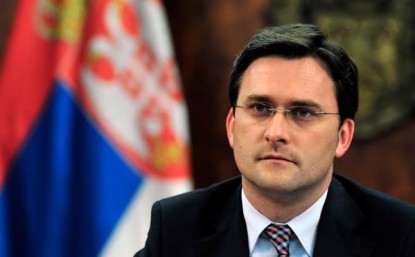The functional analysis of the judiciary in Serbia that was organised by the World Bank, has shown that only five percent of the influence on judges came from the executive or legislative authority, said Minister of Justice Nikola Selaković today when speaking about the judicial reform and judicial independence, at the Ministerial Forum in Sarajevo.
Selaković said that, according to this analysis, as much as 95 percent of the influence to which judges are exposed comes from their colleagues, friends, neighbours, relatives, lawyers, court presidents and judges of higher courts.
“If we want to improve the quality of the judiciary and make it independent, then all sources of influence should be treated equally” Selaković said and pointed to the conservative nature of the judiciary.
According to his words, the judiciary is one of the most conservative parts of the state system. “One would say that only the church system can be more conservative than the judiciary, however, considering that we live in secular states, in which the church and the state are separated, I am sure that no other part of our state system is at this level of conservatism as is the judiciary” he said.
This, he said, results in large inertia and not much wholehearted willingness of the judiciary to change, particularly in those parts in which the individuals who are creating this do not like it. “If you want to conduct the judicial reform, you need to have a clear plan of actions in defined stages, and most importantly, absolute support in the reform process” Minister Selaković said.
Speaking to the colleagues from Bosnia and Herzegovina, Republic of Srpska and Montenegro, the Minister said that the countries that have emerged from a legal system that has been in transition for two decades and, before that, under socialist and communist rule for more than four decades, it is not easy to reach values in five, six or ten years that have been developed for centuries in the western countries of Central Europe.
“The task is even more difficult when we take into account that the judiciary is one of few issues for the European Union member states which do not have a unique pattern that was applied in all or most of the member states” Selaković said and reminded that leaving the judiciary to its own preferences was differently regulated in different EU countries.
“There are member states which adhere to party quotas in selecting judges, then there are countries in which judges are appointed by the Prime Minister or the President of a country, and in others the Minister of Justice is the Attorney General.
“This is a colourful picture without a clear form” he said and noted that all the states aim to completely eliminate the influence of the executive and legislative authority. “The idea is good, however, the path to its realisation, in qualitative terms is extremely longs” Selakovć said.
He says that, in terms of the judicial reform and strengthening judicial and prosecutorial independence, the primary focus will be to gain trust of the judges and prosecutors.
Selaković also said that Serbia will remain committed to the development of standards and European values, and that it is getting ready for the opening of Chapters 23 and 24 next year. “Everything that has been envisaged in strategies and action plans for us remains the main objective and the basis for action in the reform of the judicial system in the future” Serbian Minister of Justice said.

